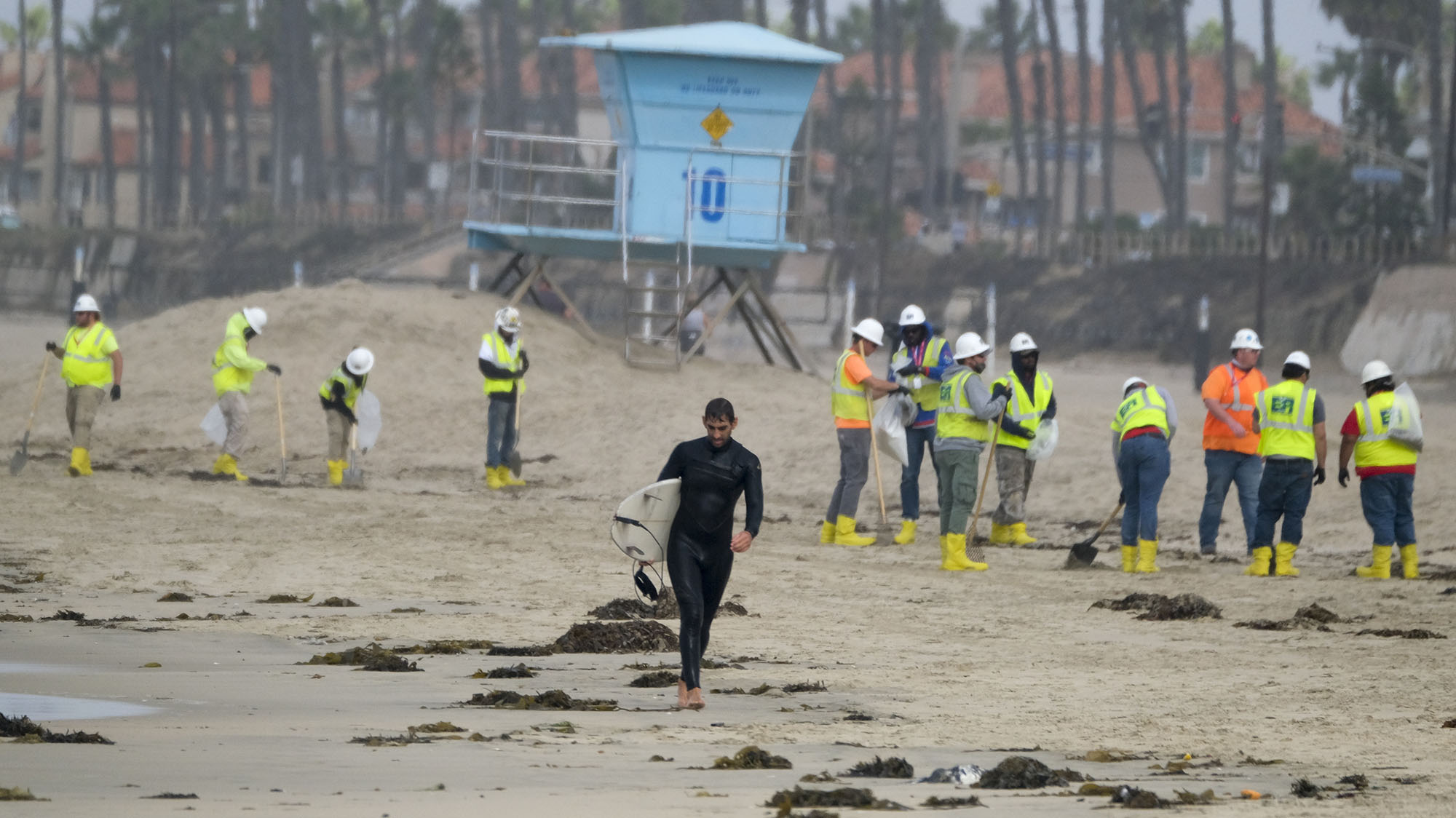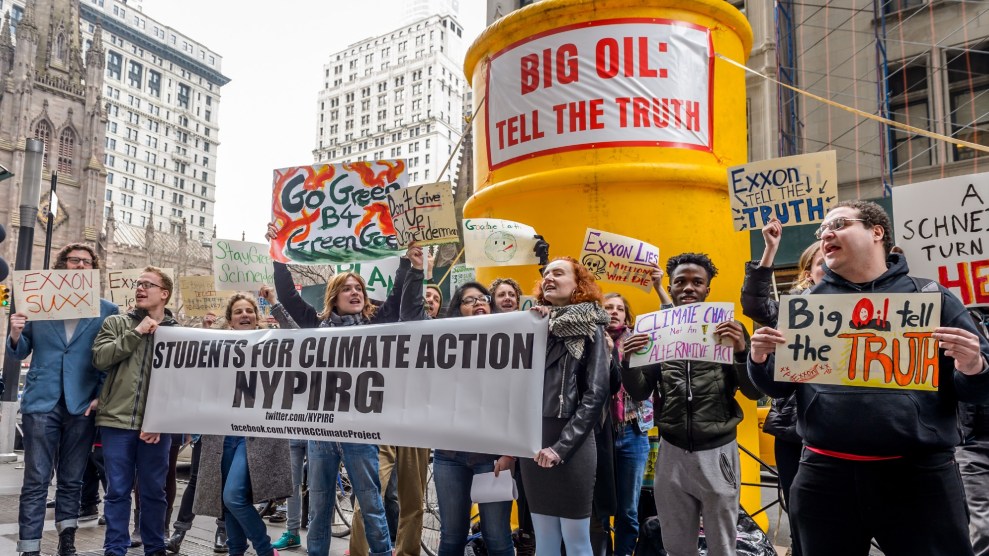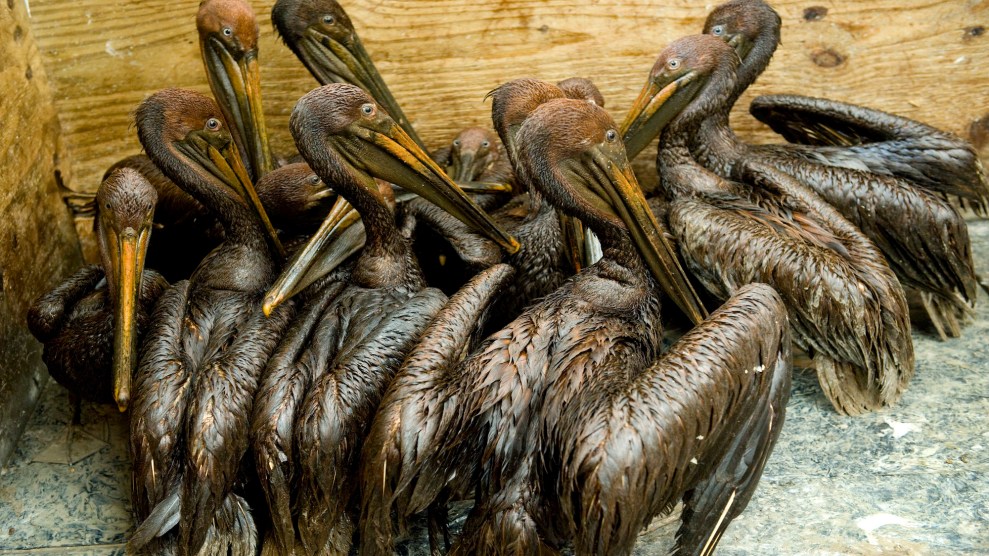 Surf’s up at Huntington Beach, 10 days after a major oil spill spoiled the waters off California’s southern coast. The popular surf spot reopened Monday after city officials and California State Parks announced in a statement that “water quality testing results showed non-detectable amounts of oil associated toxins in our ocean water.”
Surf’s up at Huntington Beach, 10 days after a major oil spill spoiled the waters off California’s southern coast. The popular surf spot reopened Monday after city officials and California State Parks announced in a statement that “water quality testing results showed non-detectable amounts of oil associated toxins in our ocean water.”
As my colleague Piper McDaniel reported last week, the ocean floor accident has exposed a complicated web of responsibility:
An estimated 144,000 gallons of oil gushed into the sea over the weekend before Amplify Energy Corp., owner of the ruptured pipeline, shut it down….As agencies triage the mess, eyes have also turned to the Coast Guard, questioning its role in a slow response that may have made things worse.
Whomever shares the immediate blame, it was systemic under-regulation that set the scene for the spill. The National Oceanic and Atmospheric Administration responds to more than 150 oil and chemical spills in US waters each year. But earlier this year, a report by the Government Accountability Office warned that the federal Bureau of Safety and Environmental Enforcement, responsible for overseeing construction and monitoring of offshore oil drilling, was failing to properly monitor and inspect active pipelines.
Numerous Orange County beaches and piers were closed to the public following the October 2 spill, which has also threatened local wildlife and wetland areas. As Piper wrote, the spill was “upending delicate ecosystems home to marine life and rare species of birds.” Working through the mess will likely be a long process. Despite Huntington Beach reopening this week, other beaches in the area remain shut down, and clean-up operations continue—including at Huntington Beach.
Here we’ve gathered some images of the still-in-flux scene.

A surfer rides a wave shortly after Huntington Beach reopened on October 11.
Paul Bersebach/The Orange County Register/AP
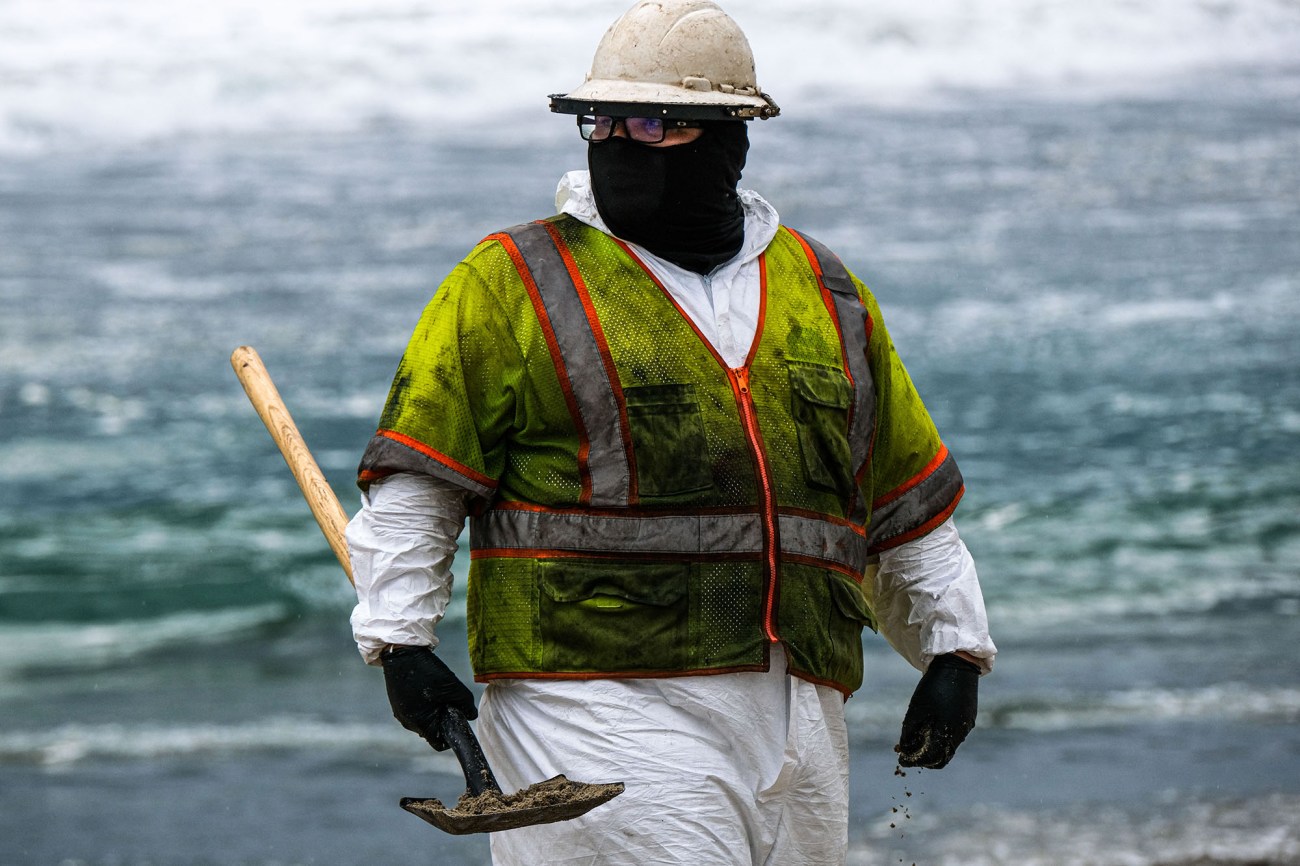
A worker in a protective suit cleans up an area of the beach.
Jason Ryan/Zuma
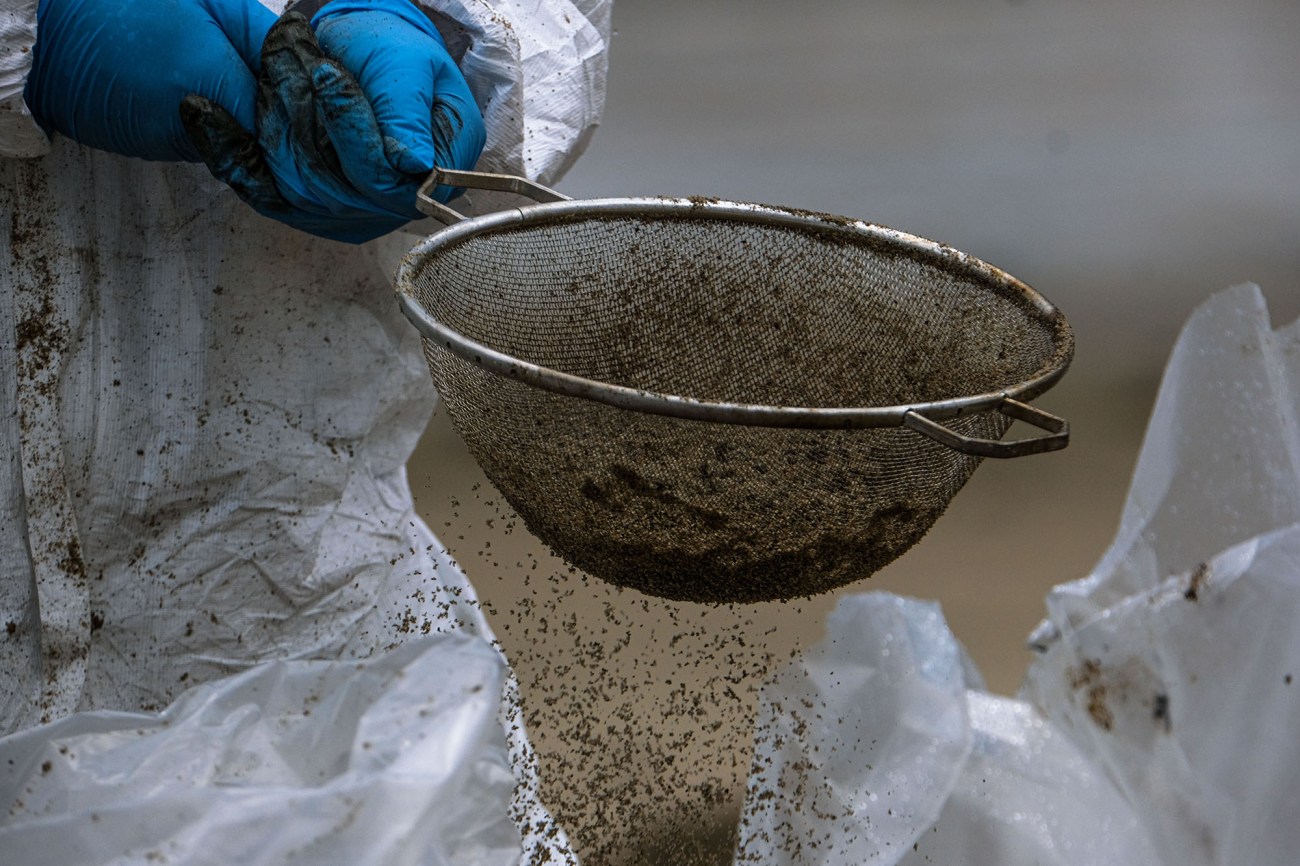
A worker sifts oil from sand.
Jason Ryan/Zuma
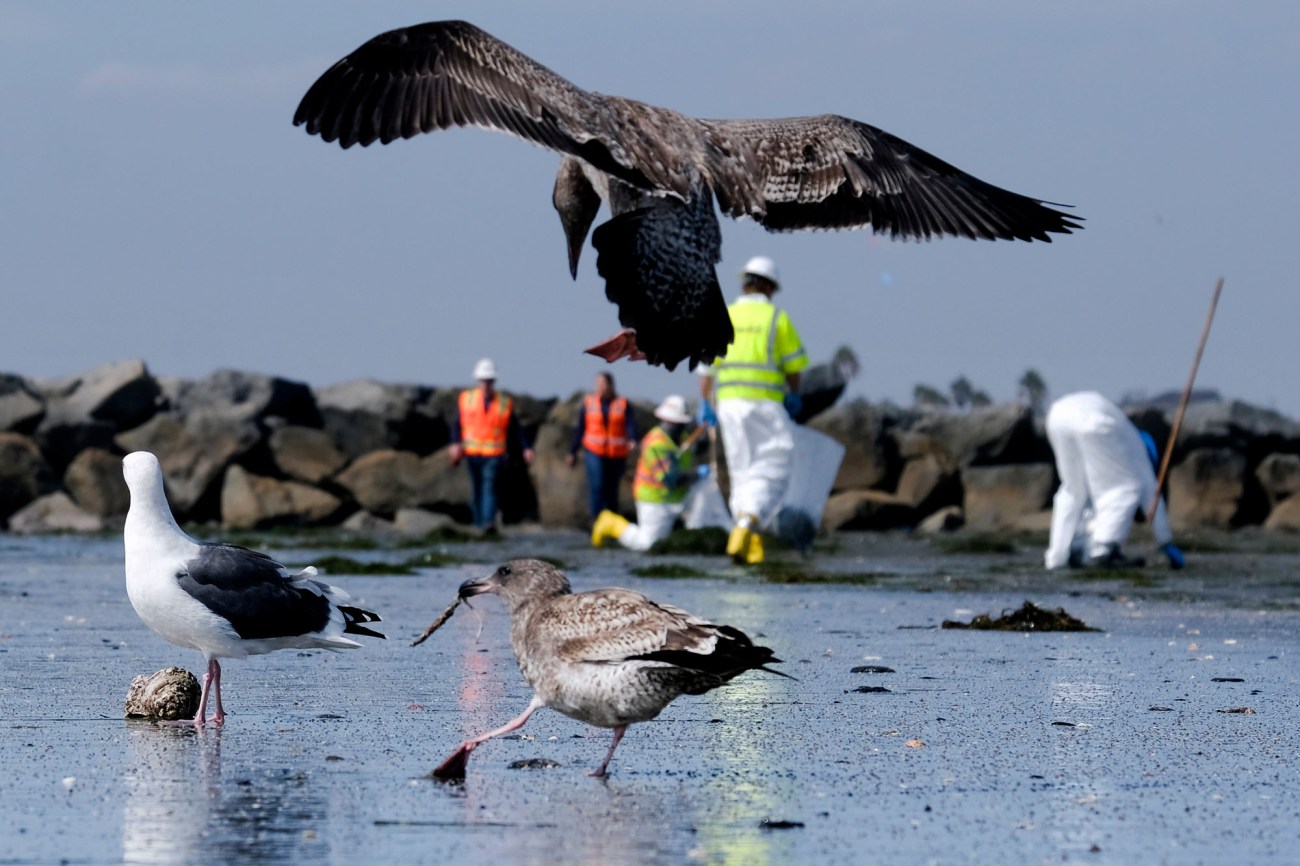
Workers clean the contaminated area in Newport Beach on October 6. Crews scrambled to contain the pollution before it spread further into protected wetlands.
Ringo H.W. Chiu/AP
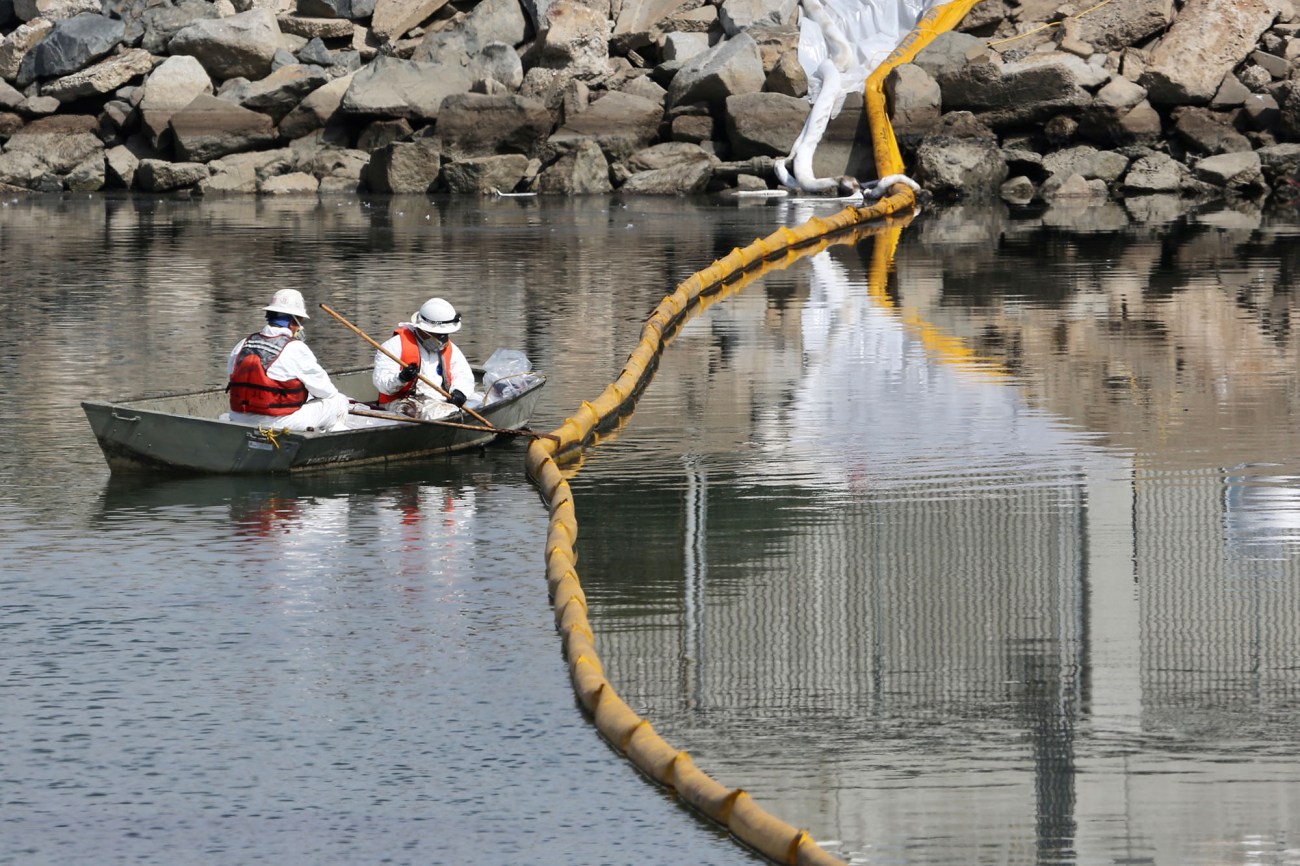
Workers collect oil from the water at Huntington Beach.
Gao Shan/Xinhua/Zuma
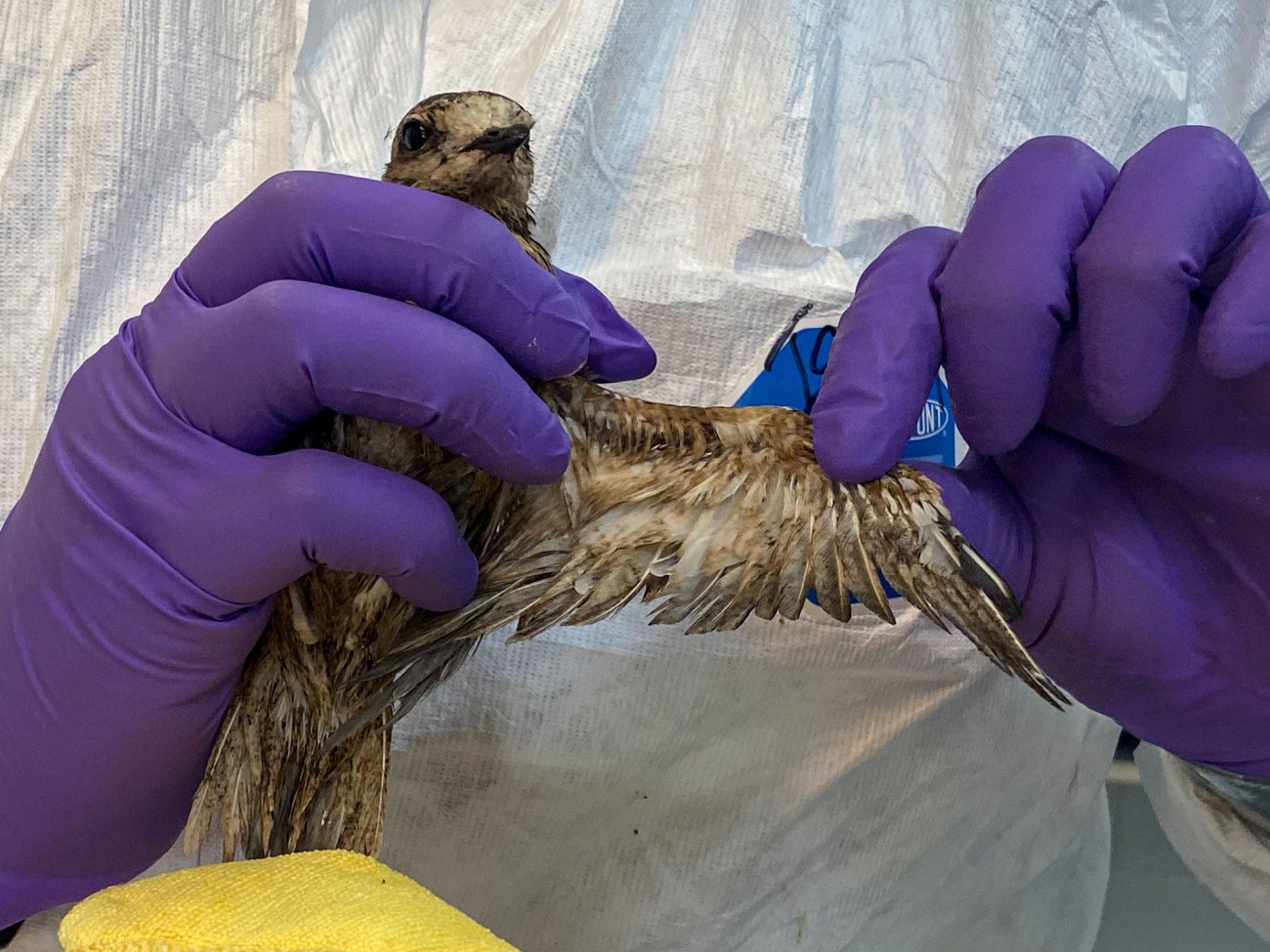
A federally threatened snowy plover receives an examination at the International Bird Rescue in San Pedro on October 8. Oiled birds are taken to the rescue center to be cleaned and rehabilitated.
International Bird Rescue/Zuma

Oil floats in the water surface in an inlet leading to the Wetlands Talbert Marsh on October 6.
Ringo H.W. Chiu/AP
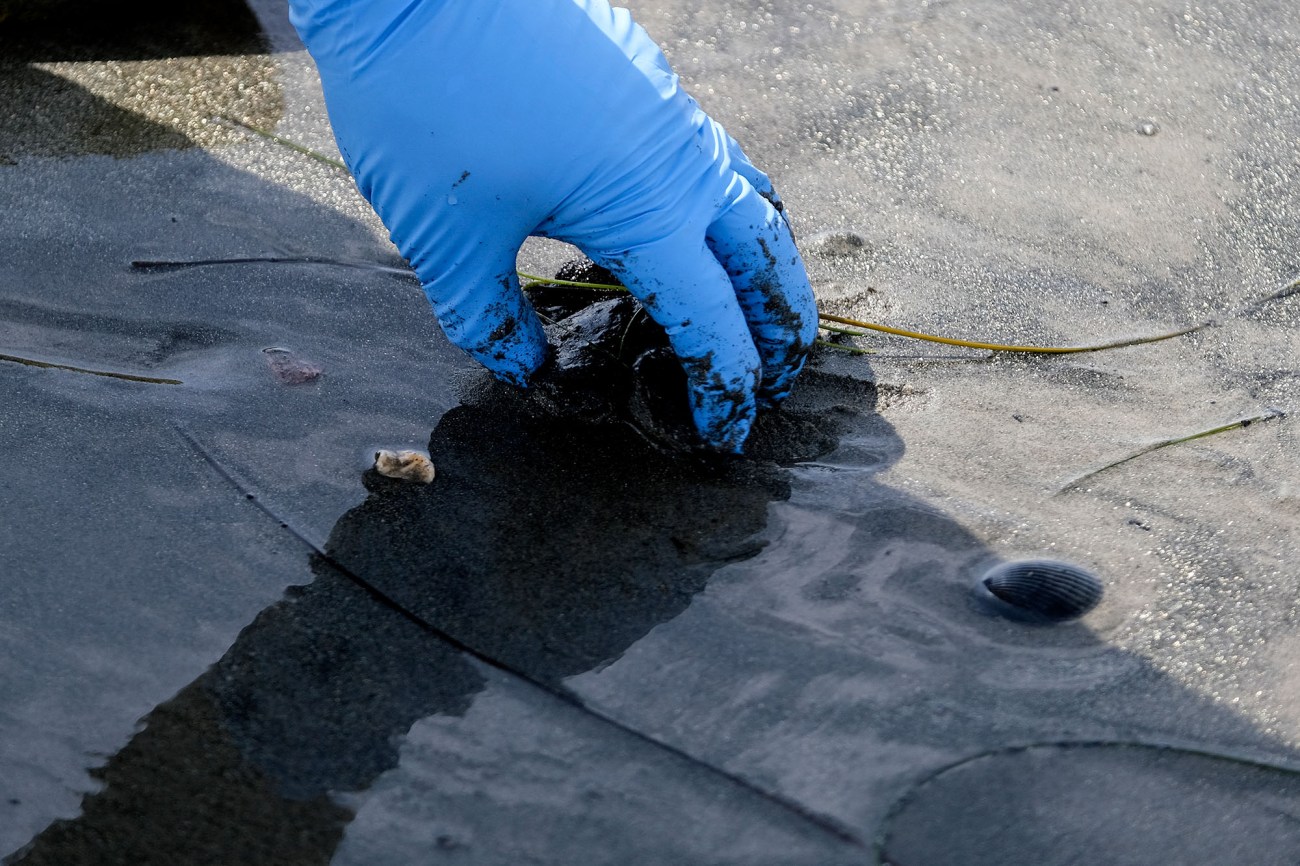
A worker cleans a contaminated part of Newport Beach on October 6. Some of the crude oil that spilled from the pipeline has been breaking up naturally in ocean currents, a Coast Guard official said last week, as authorities sought to determine the scope of the damage.
Ringo H.W. Chiu/AP
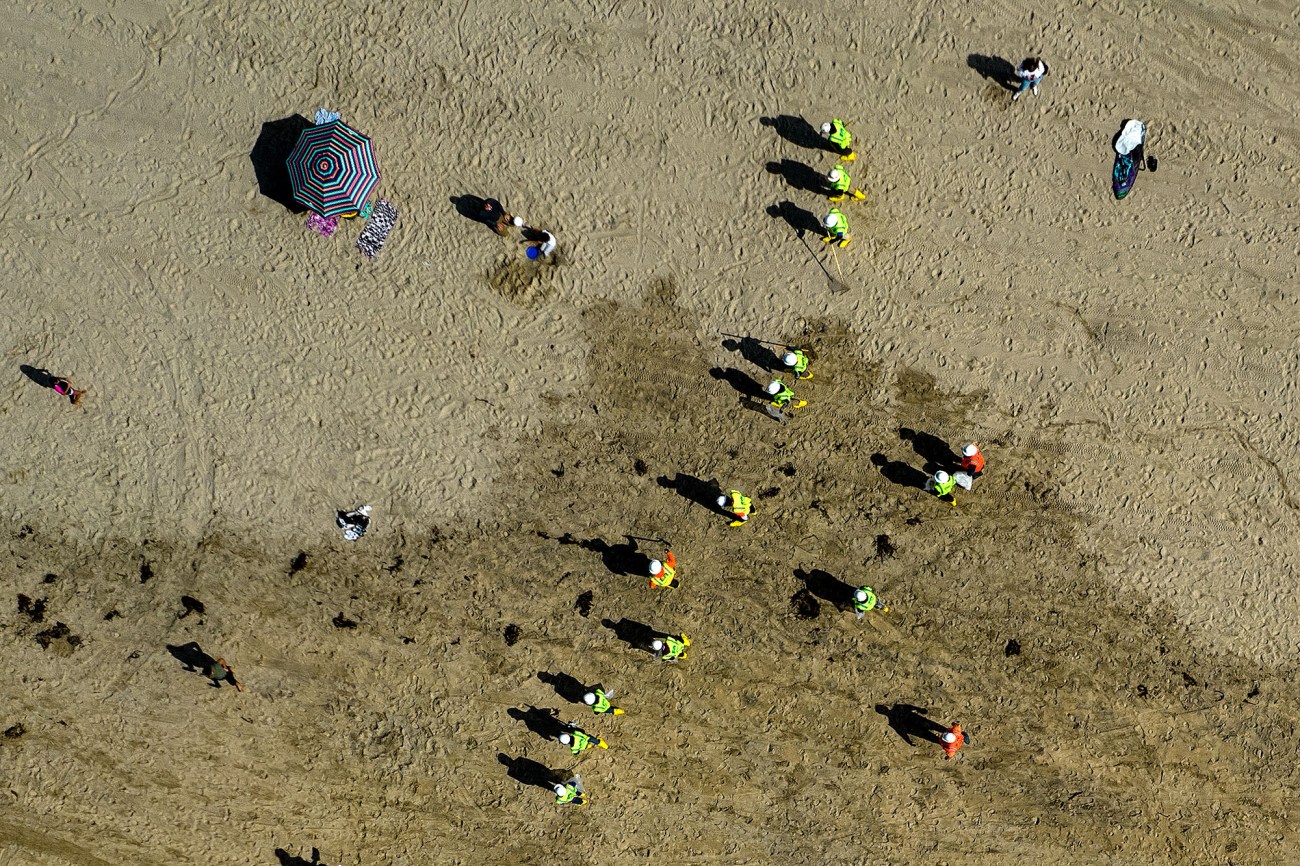
Workers in protective suits continue to clean the contaminated area in Huntington Beach, even as it reopened.
Ringo H.W. Chiu/AP
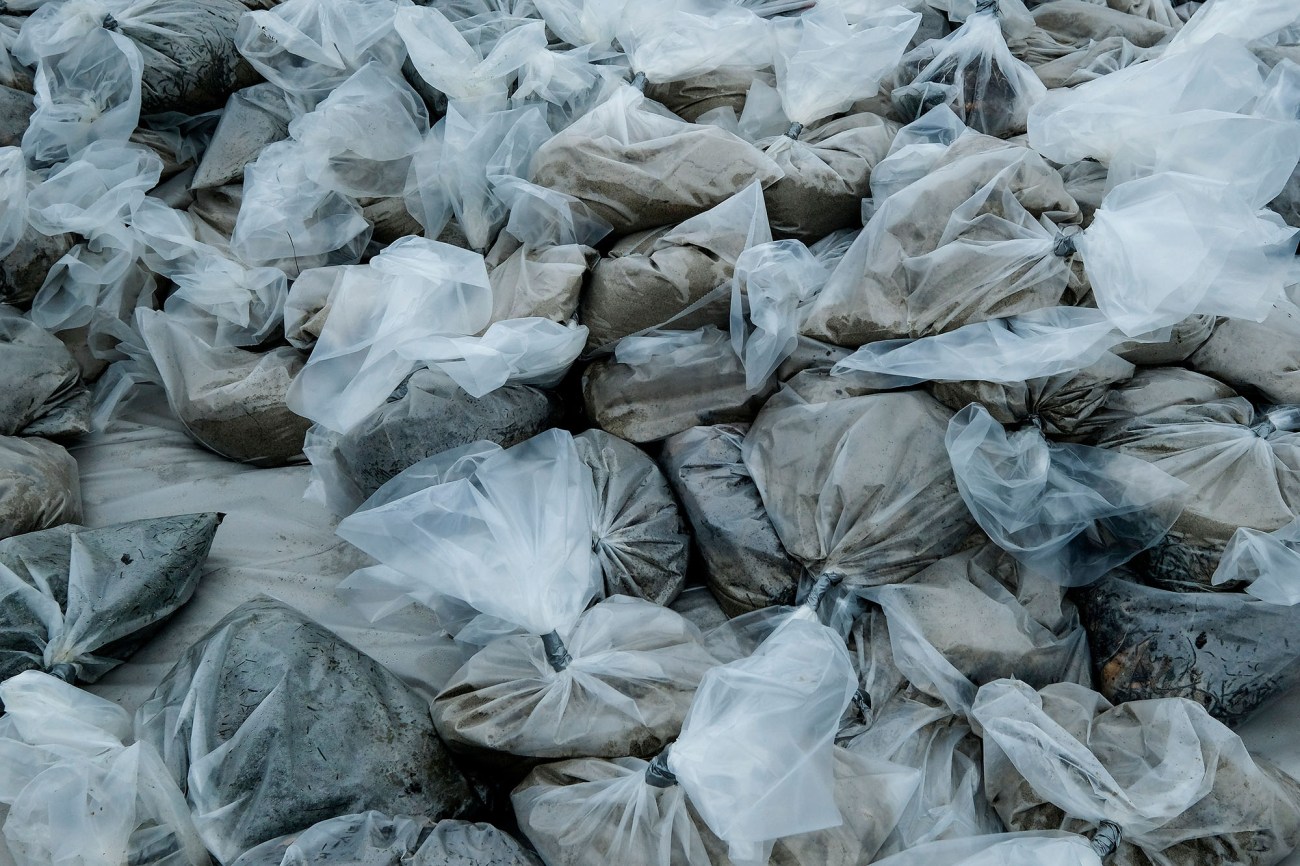
Bags of crude oil collected by workers are stacked in Newport Beach.
Ringo H.W. Chiu/AP
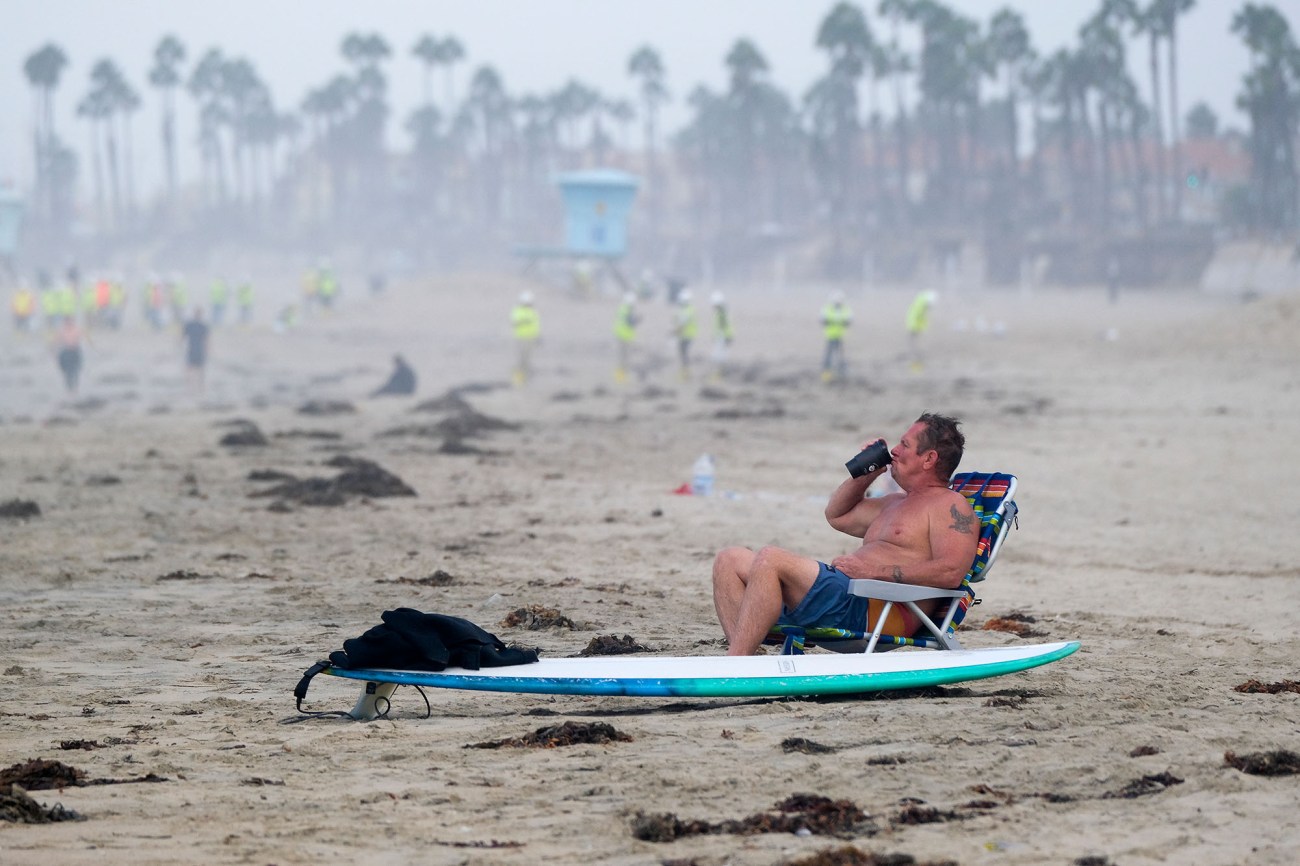
A man rests as workers in protective suits continue to clean the contaminated area in Huntington Beach.
Ringo H.W. Chiu/AP

California Attorney General Rob Bonta (right) and Sen. Alex Padilla (center) arrive for a news conference in Huntington Beach on October 11.
Ringo H.W. Chiu/AP

Surfers get ready to head out into the water at Huntington Beach after it reopened.
Ringo H.W. Chiu/AP
